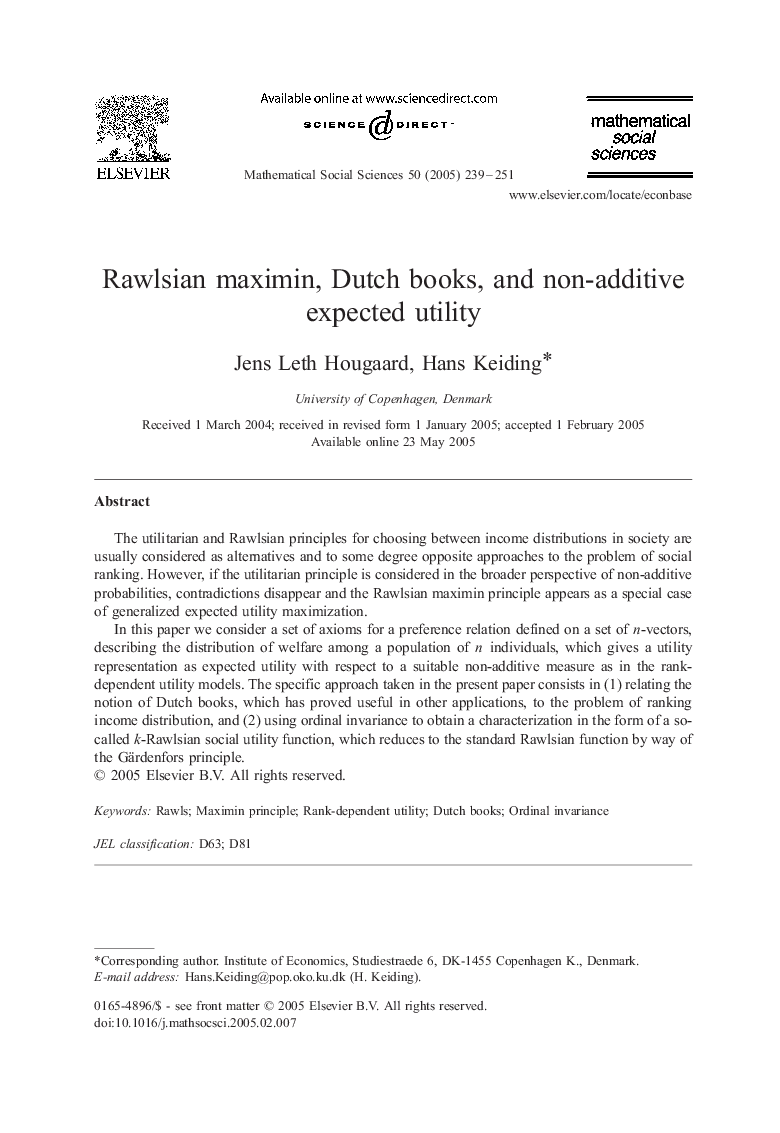| Article ID | Journal | Published Year | Pages | File Type |
|---|---|---|---|---|
| 9727367 | Mathematical Social Sciences | 2005 | 13 Pages |
Abstract
In this paper we consider a set of axioms for a preference relation defined on a set of n-vectors, describing the distribution of welfare among a population of n individuals, which gives a utility representation as expected utility with respect to a suitable non-additive measure as in the rank-dependent utility models. The specific approach taken in the present paper consists in (1) relating the notion of Dutch books, which has proved useful in other applications, to the problem of ranking income distribution, and (2) using ordinal invariance to obtain a characterization in the form of a so-called k-Rawlsian social utility function, which reduces to the standard Rawlsian function by way of the Gärdenfors principle.
Related Topics
Physical Sciences and Engineering
Mathematics
Applied Mathematics
Authors
Jens Leth Hougaard, Hans Keiding,
